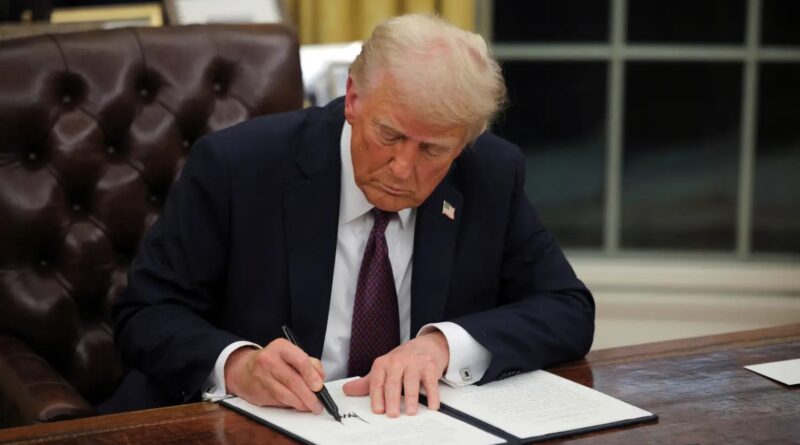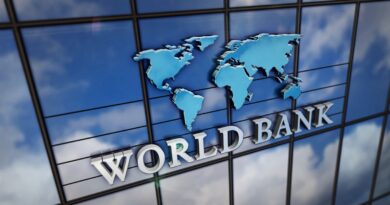African Nations Brace for Impact of Trump’s New Tariffs
Nigeria and other African nations are bracing for potential economic challenges following U.S. President Donald Trump’s decision to implement new tariffs on imports from Canada, Mexico, and China. These tariffs, set to take effect immediately, include a 25% duty on goods from Canada and Mexico and an additional 10% on imports from China. The affected nations have already announced retaliatory measures, escalating concerns of a global trade war.
In response to Trump’s tariffs, Canadian Prime Minister Justin Trudeau announced that Canada would impose counter-tariffs of 25% on $155 billion worth of American goods. “This will include immediate tariffs on $30 billion worth of goods as of Tuesday, followed by further tariffs on $125 billion worth of American products in 21 days’ time,” Trudeau stated. Similarly, Mexican President Claudia Sheinbaum has directed her economic secretary to prepare retaliatory tariffs, rejecting accusations from the White House that Mexico has ties to criminal organisations. China, on the other hand, has vowed to challenge the tariffs through the World Trade Organisation, arguing that the move violates WTO rules.
Implications for Nigeria and Africa
For Nigeria and Africa, the situation is particularly concerning as these economies are not well-equipped to handle external economic shocks and lack leverage to retaliate. Three major threats loom over Nigeria’s economy as a result of Trump’s policies:
- Oil Market Disruptions: Trump has signalled a push for increased domestic oil production in the U.S., which could lead to an oversupply and a drop in global crude oil prices. Given Nigeria’s heavy reliance on oil exports, this could severely impact government revenue and economic stability.
- Tariffs on Oil and Gas Imports: The U.S. president recently announced plans to impose tariffs on oil and gas imports, which could further reduce demand for Nigeria’s energy exports. “We’re going to put tariffs on oil and gas,” Trump stated, indicating that these tariffs would take effect around February 18, 2025.
- Restrictions on AGOA and African Shops: Trump’s trade policies also threaten the African Growth and Opportunities Act (AGOA), a trade agreement that has allowed Nigeria and other African nations to export goods to the U.S. at reduced tariffs for over 15 years. The renewal of AGOA, which was postponed last year due to congressional delays, now faces uncertainty as Trump has expressed opposition to the policy. Furthermore, African businesses in the U.S., particularly “African Shops” that generate approximately $15 billion in annual revenue, may also be at risk due to potential trade restrictions on African agricultural exports.
RELATED: Trump halts HIV/AIDS aid, endangering millions of lives.
As the U.S. moves forward with its protectionist trade policies, Nigeria and other African nations are left grappling with an uncertain future. With limited economic diversification and heavy reliance on exports, particularly oil and agricultural products, the region may face severe financial strain. While affected countries such as Canada, Mexico, and China have retaliated against the U.S., African nations have yet to formulate a clear response to these economic disruptions.
Content Credit| Oyedepo Oluwafifedoyinsola Precious
Picture Credit | https://www.brookings.edu/




